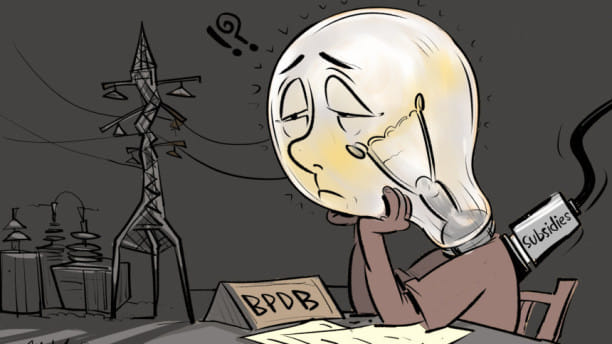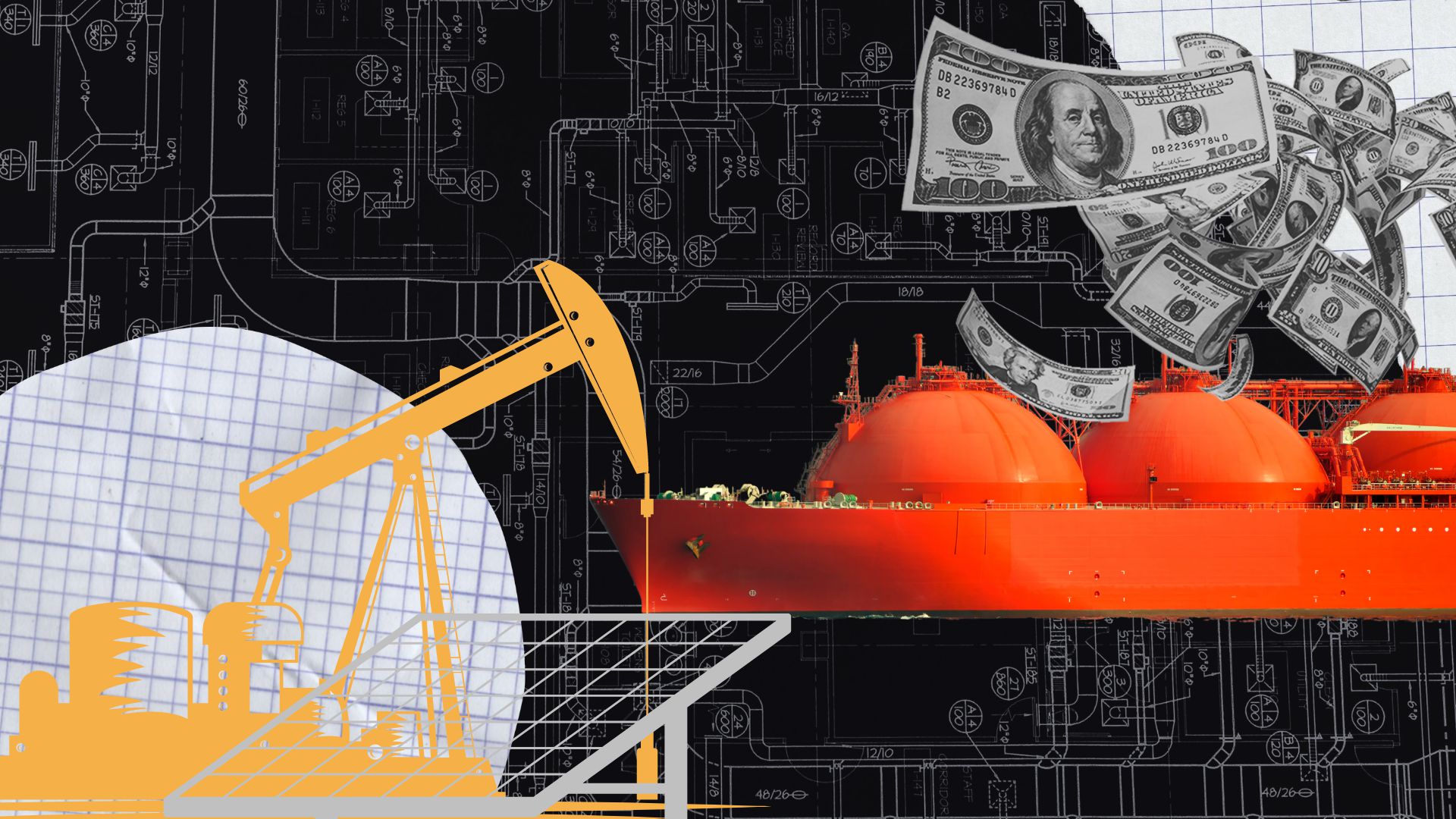How the power and energy sector can come out of constant financial crunch

The Centre for Policy Dialogue (CPD) has put forward a set of recommendations targeting the national budget for FY2025-26, especially with regard to the power and energy sector. There are grave concerns about the sector since it has confronted a vicious cycle of financial crunch over the last several years, which is likely to continue in the next fiscal year unless necessary measures are taken by the Ministry of Power, Energy and Mineral Resources (MoPEMR) and Ministry of Finance (MoF).
The power and energy sector has faced prolonged financial losses, rising public debt, and increasing fiscal burdens due to faulty policies, lack of transparency, and weak governance during the previous regime. Key challenges include: a) defaults on import bill payments; b) repayment of international loans and dues to international companies; c) disrupted gas and electricity supply; d) a lack of domestic gas exploration; and e) a growing subsidy burden passed onto consumers via higher tariffs. The upcoming national budget should focus on paying off outstanding dues, reducing subsidies, prioritising domestic gas exploration over LNG imports, lowering tariff barriers for renewable energy components, and eliminating discriminatory fiscal benefits for fossil-fuel-based power generation. As of February 2024, the Bangladesh Power Development Board (BPDB) has an overdue payment of Tk 29,000 crore, with Tk 21,000 crore owed to locally owned independent power plants (IPPs) and Tk 8,000 crore to foreign-owned IPPs, including Adani Power Jharkhand Ltd. Similarly, Bangladesh Oil, Gas and Mineral Corporation, also known as Petrobangla, faces outstanding dues for LNG and coal imports. To address this, the finance ministry plans to clear all arrears within the current fiscal year by reallocating unused ADP funds and raising the power sector subsidy to Tk 62,000 crore. However, this approach highlights a troubling cycle of overdue loans, unpaid bills, and ongoing financial liabilities in the power and energy sector.
Macroeconomic concerns
Fiscal policies directly impact macroeconomic performance. However, one major mistake and overlooked issue of the previous regime was failing to consider the broader macroeconomic context while injecting substantial funds into the power and energy sector, without addressing the effects of rapidly increasing money supply. This sector has been one of the highest recipients of subsidies, contributing to a weak macroeconomic foundation and rising price levels that persist today.
While subsidies may lower energy prices for consumers, they inadvertently increase the overall money supply, raising demand for power and contributing to demand-pull inflation. This inflationary pressure, driven by more money in the economy and artificially low prices, causes general price levels to rise.
Conversely, reducing subsidies would lead to higher prices for consumers at both household and production levels, also contributing to inflation but with different consequences. In this case, the government's fiscal burden would decrease, potentially alleviating pressure on public finances. However, reducing subsidies could also increase the fiscal deficit, adding pressure to inflation. The reality is, there is no straightforward solution; decisions must balance controlling inflation, reducing fiscal deficits, and reallocating subsidies for long-term sustainability in the sector.
Five-year financial recovery plan needed
To break the cycle, the MoPEMR, particularly BPDB and Petrobangla, should design a five-year financial plan to gradually reduce overdue payments. This plan should phase out fossil-fuel-based power plants after current contracts end, removing the "capacity payment" clause from renewed power purchase agreements (PPAs) and new contracts. In the short term, the MoPEMR should work with the finance and planning ministries to allocate additional funds as loans to BPDB and Petrobangla to clear overdue payments. These funds could come from ministries with poor fund utilisation records. The MoPEMR should also coordinate with the finance ministry to secure foreign exchange to clear overdue payments to foreign companies and projects, with the finance ministry and the Economic Relations Division (ERD) negotiating with multinational development banks like the International Monetary Fund (IMF), World Bank, and Asian Development Bank (ADB) for budget support. Additionally, the MoPEMR must present a medium-to-long-term financial sustainability plan.
Developing domestic gas sector is crucial
Despite the plan to drill 35 gas wells across the country by 2025, only one has been drilled so far. While three key projects have been approved and eight new projects are proposed for survey, exploration and extraction of hydrocarbons to boost gas reserves, the number of ongoing and planned projects remains too small to meet the exploration target. To address this, Petrobangla should expedite the explorations of gas wells using its own gas development fund instead of relying on foreign bidders. The Bangladesh Petroleum Exploration and Production Company Limited (BAPEX) can take loans to allocate resources for the exploration of the 10 gas wells, scheduled to be explored using rented rigs. Since supplying energy is one of the topmost priorities for the national economy, the MoPEMR should discuss the necessary allocation of resources for ADP projects on the development of gas fields with the planning ministry.
Such a slow pace of gas exploration, coupled with prompt initiatives to import liquefied natural gas (LNG) continuously from the spot market, has raised concerns regarding the government's commitment to reduce energy import dependency. To address this, the government should start deprioritising LNG imports. In this context, the recent deal signed with the US for LNG supply could undermine the efforts to explore domestic gas resources. Instead, the government may consider welcoming US-based companies to submit their proposals for gas exploration in the off-shore fields.
Reducing import tariffs, other duties for green energy transition
One significant barrier to attracting private and public investment for green energy transition and attaining self-sustenance is the high tariff structure imposed on the import of essential renewable energy components. The total tax incidence on these imported components consists of multiple layers, such as customs duty, supplementary duty, advance income tax, advance tax, and value-added tax (VAT), significantly raising the costs. The overall impact of these tariffs is twofold: a) they increase the capital expenditure for renewable energy projects; and b) they slow the adoption of clean energy technologies due to higher financial barriers. For example, the total tax incidence imposed on solar panels is 26.2 percent, solar inverters 37 percent, mounting structures 58.6 percent, lithium-ion batteries 58.6 percent, and lead-acid batteries 89.32 percent. Additionally, other key renewable energy technologies such as wind, hydro, geothermal, and biomass-based power generation rely on imported equipment and components that are subject to similarly higher import duties and tax incidence. Similarly, electric vehicles face higher tax incidence. In contrast, the tax incidence is much lower for equipment and other components of fossil-fuel-based power generation.
Custom duties on parts, equipment, and components related to renewable energy supply chains, including generation, transmission, and distribution, should be reduced to five percent. The government should also eliminate taxes on all renewable energy goods to reduce costs and boost wider adoption of renewable energy technologies. Such measures would have only a marginal impact on the government's aggregate revenue generation. Also, VAT on parts, equipment, and components related to renewable energy supply chains should be reduced from 15 percent to 10 percent. In addition, a dedicated Renewable Energy Development Fund should be established to provide financial support for facilitating the establishment of distributed renewable energy systems, under private and commercial solar, wind, and biomass production units. To improve access to clean energy in remote and underserved regions, development funds should be allocated for mini-grid solar, battery storage technologies and wind projects.
Withdrawing benefits for fossil-fuel-based power
Addressing the fiscal benefits provided to fossil-fuel-based power producers is crucial for creating a level playing field for renewable energy producers. Under the Private Sector Power Generation Policy, fossil-fuel-based power plants receive significant tax exemptions, including a 15-year corporate income tax holiday, exemptions on plant and equipment imports, and full customs duty exemptions on imported fuel. The companies are allowed to import plant and equipment and spare parts up to a maximum of 10 percent of the original value of total plant and equipment within 12 years of commercial operation without payment of customs duties, VAT, and any other surcharges. The exemption includes paying import permit fees, except for indigenously produced equipment manufactured according to international standards. For imported fuel, there is full exemption of custom and import duties, and five percent VAT on the imported fuel as it will be used for the power generation process. These advantages have skewed the power sector, making it difficult for renewable energy producers to compete.
To rectify this, the Power Division should work with the National Board of Revenue (NBR) to remove corporate tax exemptions for fossil-fuel-based power plants in upcoming projects. A minimum five percent customs duty and surcharge should be imposed on the import of machinery and steel structures for fossil fuel plants. The Power Division should also review and compare the fiscal benefits given to fossil fuel plants with those for renewable energy producers, taking steps to eliminate discriminatory advantages. The MoPEMR, Power Division, Bangladesh Energy Regulatory Commission (BERC), and Sustainable And Renewable Energy Development Authority should collaborate with the finance ministry and NBR to withdraw these measures, reducing government fiscal expenditure and generating additional revenue.
Dr Khondaker Golam Moazzem is research director at the Centre for Policy Dialogue (CPD). He can be reached at moazzem@cpd.org.bd.
Helen Mashiyat Preoty is senior research associate CPD.
Faisal Quaiyyum is programme associate at CPD.
Views expressed in this article are the author's own.
Follow The Daily Star Opinion on Facebook for the latest opinions, commentaries, and analyses by experts and professionals. To contribute your article or letter to The Daily Star Opinion, see our submission guidelines.




 For all latest news, follow The Daily Star's Google News channel.
For all latest news, follow The Daily Star's Google News channel. 


Comments